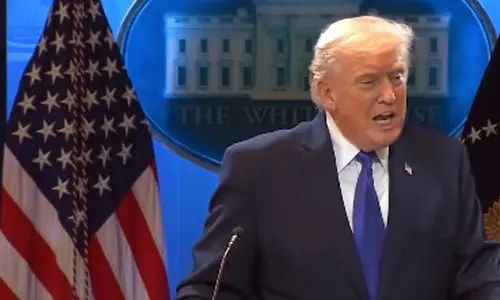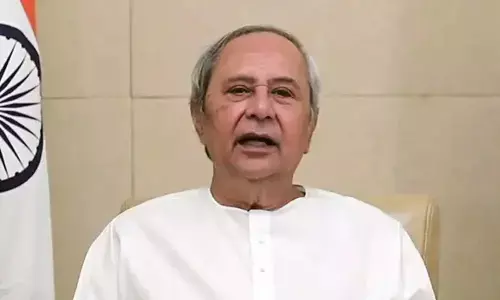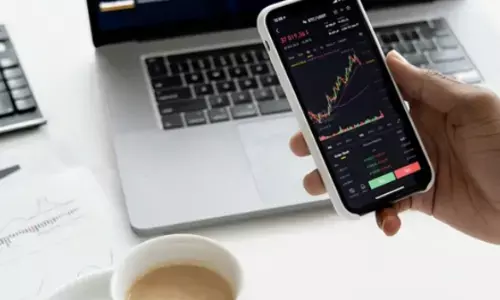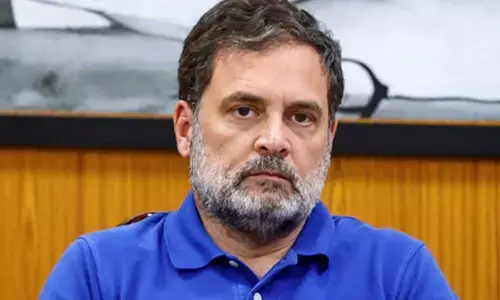A hopeless scenario in Venezuela
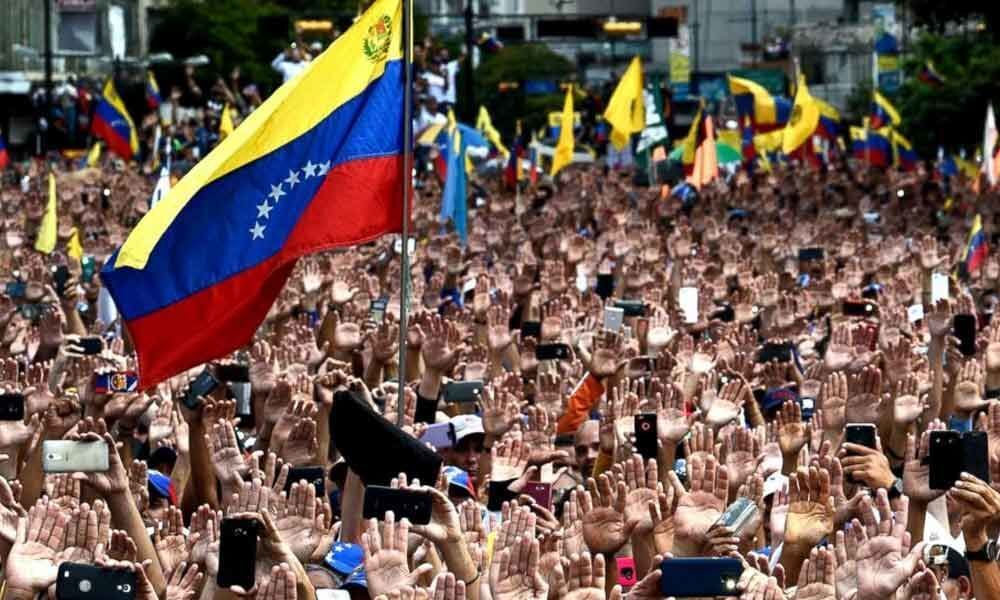
Venezuelan President, Nicolas Maduro appeared flanked by soldiers at an army base in Caracas this week, in a show of defiance towards his opponents and called on the armed forces to defeat any coup plotter as clashes between opposition supporters and pro-government forces continued.
Venezuelan President, Nicolas Maduro appeared flanked by soldiers at an army base in Caracas this week, in a show of defiance towards his opponents and called on the armed forces to defeat any coup plotter as clashes between opposition supporters and pro-government forces continued.
Opposition leader Juan Guaido tried on May 1 to spark a military rebellion and force Maduro from office. He had urged public employees to strike to undermine the government.
In January last, he declared himself interim leader with the support of some 50 and odd countries including the US, UK and most Latin American nations.
As the head of the opposition-controlled National Assembly, he invoked the constitution to assume and interim presidency, arguing that Maduro's re-election last year was illegitimate.
But Maduro was backed by Russia, China and other leaders of Venezuela's military and refused to surrender to the US and its friends.
How did Maduro survive? At least for now? When Maduro appeared with soldiers in Caracas, it clearly showed it was a failure in the sense (of Guaido) that this left the opposition weaker than they were before.
Workers never joined the opposition protests nor strike the work. They wanted to retain their jobs after a warning issued by Maduro.
Guaido's plans, again, were mere wishes, and he had not neither planned properly nor was assured of any one's support within. He expected mass defections from Venezuela's intelligence services and military.
Neither happened. The only big name that Guaido could claim to have defected to his side is Manuel Ricardo Christopher Figuera, head of the feared intelligence services, who criticised 'rascals and rogues' looting the country since long. And Guaido's armed guards' strength remained the same - about a 100.
Like Sri Lanka, Venezuela is engulfed in chaos with the powerful men of the country clashing. With the death of Chavez, the socialist state-managed, oil dependent Venezuelan economy collapsed.
Despite holding the world's largest oil reserves, Venezuela's debt exploded and inflation intensified the stress on an already poor economy.
Maduro who stepped in introduced several laws giving a chance to his critics to claim that democracy has been wiped out in the country.
A national election of 2017 was said to have been rigged by Maduro and the Constituent Assembly was filled with Maduro loyalists and it banned the National Assembly from passing laws. Guaido could not do much except revolt.
Its Supreme Court is pro-Maduro. However, it is the indifference of the people, that keeps Maduro in power, however, corrupt or highhanded he may have been.
Even if Venezuela wants to recover, there is little that it could do now. Big powers have already stepped in. The US, UK and their allies on one side and Russia, China etc on the other do not allow normalcy to be restored come what may.
After all, Venezuela is too rich for them to ignore. Its oil is its bane. The hungry sharks won't allow it to stabilize and progress.
Venezuelans' should realize this. The Socialist dream is shattered. What next for the people of the country? Unless a serious thought is given to it instead of meekly surrendering to the situation, there is no hope for it.


